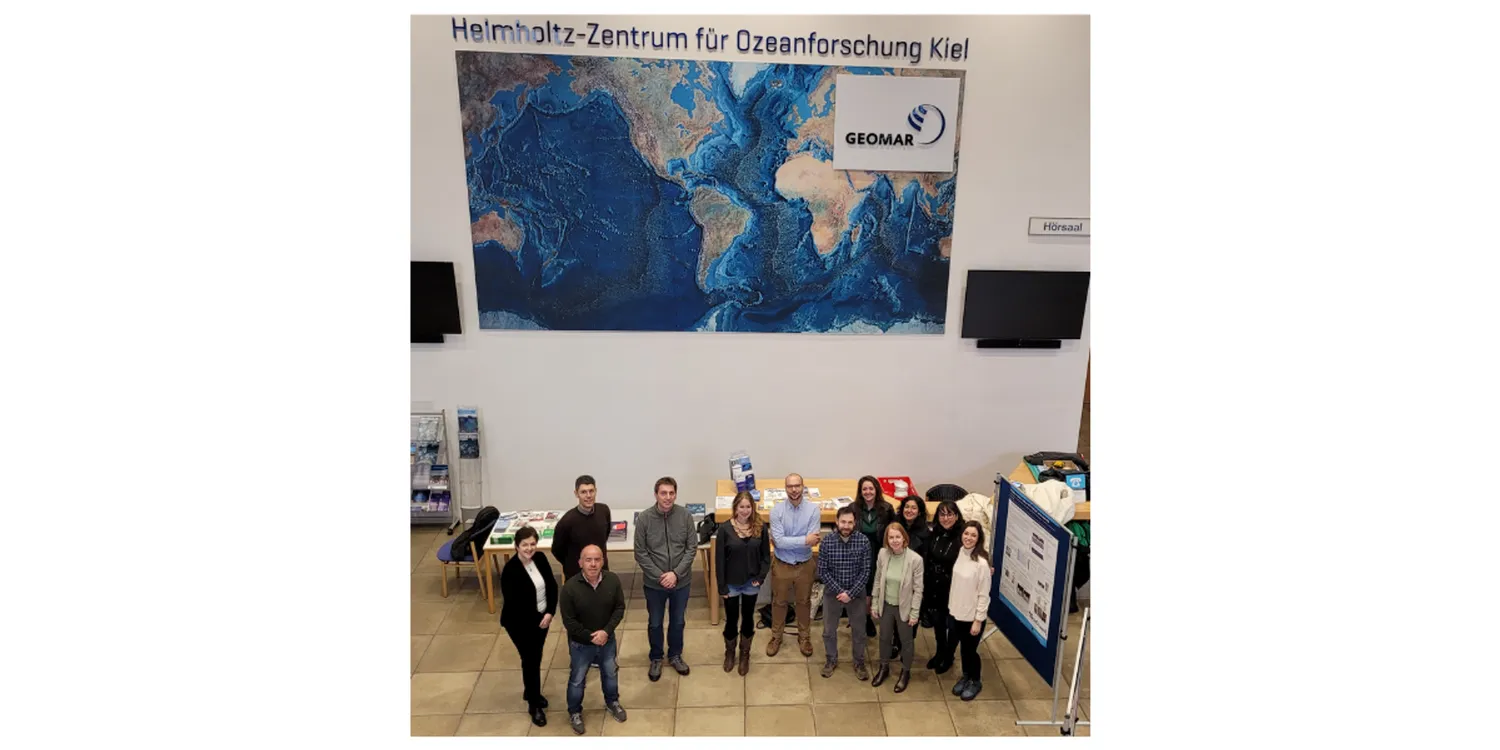25 Apr 2023
TechOceanS partners gathered in Kiel, Germany and online for the 7th Executive Board meeting on the 20th and 21st of March 2023.
Thirteen work package leaders and researchers met at GEOMAR - Helmholtz Centre for Ocean Research Kiel (GEOMAR) facilities, on the shore of the Kiel Fjord, to monitor progress with respect to planned activities. Several partners who were unable to attend in person also joined through live video conferencing.
The first day saw presentations by the Genomics Theme, the Imaging and Optics Theme, and the Microsensors Theme with all work packages reporting on their most recent results and achievements since the last consortium meeting in November 2022. ALFRED-WEGENER-INSTITUT (AWI) hosted a workshop on data management best practices providing a timely reminder to all partners on the importance of ensuring that TechOceanS data meet the FAIR Data Principles (Findable, Accessible, Interoperable, and Reusable).
Partners attended an Early Career Researchers poster session in the afternoon, with six project posters presented via a series of flash talks in person and online. Research presented included: novel molecular sensing for marine invasive species monitoring, flexible fluidics for in situ nucleic acid analysis, a deployable cytometer for the analysis of marine phytoplankton and microplastics, antibody-based Lab-on-Chip detection of ocean contaminants of emerging concern, a microfluidic assay test platform, and an isothermal RPA-CRISPR/Cas assay to detect European Sea Bass.
On the second day the Cross-cutting and Testing Theme, Dissemination Theme, and Management and Ethics Theme all presented their work packages including future plans for testing and validation activities. Ample time was allocated to allow for in-person collaborations and many of the presentations provided a springboard for discussions on upcoming demonstration and stakeholder engagement activities.
All Themes are now entering an exciting new phase with demonstration, validation, and exploitation activities ramping up to further progress results down the value chain, ensuring that the final sensors meet end-user needs.
Praising the exciting progress being made and the sustained collaboration between work packages, Project Coordinator Matt Mowlem of the National Oceanography Centre said:
“It is exciting to see so much progress with so many brand-new cutting-edge ocean observation and measurement technologies. The advances in ocean sensing, sampling and imaging look set to transform how we conduct marine science and sustainable marine industries. It is great to see preparations for coastal and offshore demonstration missions for science, aquaculture, and offshore energy, and particularly pleasing to see community support activity such as preparation of Ocean Best Practices documents and training events”
With the project now approaching its final year exciting times are surely ahead, keep an eye on the website, Twitter (@TechOceanS) and LinkedIn for all the latest updates!
Note for editors:
- TechOceanS is a project funded by the European Union's Horizon 2020 research and innovation programme under Grant Agreement No 101000858 (TechOceanS)
- It is developing a suite of new sensors, samplers and methods that fill data gaps and reduce cost / environmental impact of making biological and chemical measurements in the oceans
- Key gaps addressed include biological and chemical data that can be collected by robots (autonomous vehicles) and uncrewed floats, buoys and moorings
- For further information visit: www.techoceans.eu
